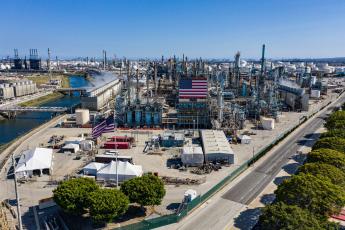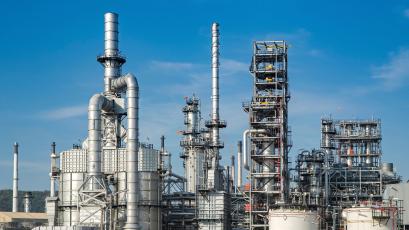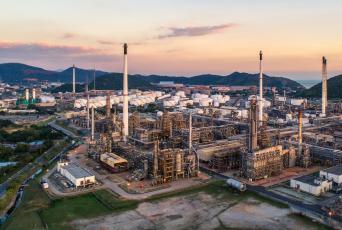California Ban on Gas & Diesel Cars and Trucks Should Concern Every American
AFPM president and CEO Chet Thompson issued the following statement in response to a vote of the California Air Resources Board (CARB) approving California’s Advanced Clean Cars 2 regulation, establishing an escalating ban on the sale of gasoline and diesel-fueled cars and trucks, culminating with a 100% ban by 2035. "California’s radical ban on gasoline- and diesel-fueled cars and trucks will have devastating implications for consumers, energy security and the U.S. manufacturing economy. It is critical that President Biden and the EPA reject California’s request for a Clean Air Act waiver to proceed with this unlawful ban."
EPA Proposal to Change an Effective RMP Lacks Data, Would Impose Significant Costs Without Improving Safety
EPA’s existing Risk Management Plan (RMP) is doing what it was designed to do: drive continual safety improvements across workplaces to keep industry employees, contractors, facility neighbors and local environments safe. Any changes to a regulation as effective as the RMP need to be solidly evidence-based. Unfortunately, today’s proposal is filled with costly and misinformed changes, with little-to-no data to back them up. In fact, many of the proposed changes will adversely impact the safety and security missions of refining and petrochemical sites. AFPM looks forward to providing detailed comments on this proposal.
AFPM: Inflation Reduction Act Falls Short
AFPM opposes the Inflation Reduction Act as written. We evaluated the bill against our core principles, specifically whether the legislation would support strong U.S. refining and petrochemical industries and whether it pursued emissions reductions in a market-based and cost-effective manner. Unfortunately, the IRA falls short of these goals.
Are Gasoline and Diesel the Only Commodities that have Gotten More Expensive?
With big earnings being reported in the refining sector and countless stories focusing on national gasoline and diesel prices, it’s natural to want
Refiners Praise USTR Ambassador Tai’s Move to Address Mexico’s Energy Policies
AFPM President and CEO Chet Thompson issued the following statement: "AFPM applauds the United States Trade Representative (USTR) for elevating this important matter. Mexico’s policies toward American energy companies need to be addressed in the spirit of the United States-Mexico-Canada trade agreement (USMCA). American refiners have made significant investments in Mexico-based operations, jobs and infrastructure and we want our trade relationships with Mexico to remain healthy and mutually beneficial.”
What to Keep in Mind re. Updates to EPA’s Risk Management Plan
With the possibility that the EPA and policymakers could make updates to the Risk Management Plan (RMP) program, there are three things we encourage them to keep in mind: 1. RMP is working as intended and keeping people safe. 2. Any changes to RMP must be evidence-based and actionable. 3. Using RMP to zero in on hydrofluoric acid (HF) alkylation at refineries could have major impacts on U.S. fuel supplies.
What They’re Saying: Experts Examine How Export Bans Could Drive Up Fuel Prices and Risk Closing Refineries
The U.S. refining sector is the most competitive and resilient in the world. Participation in the global market benefits U.S.
Refinery Earnings Are Up. Why?
The return of fuel demand to pre-pandemic levels and the slower rebound of crude oil and fuel production has created concerns about whether supplies of gasoline, diesel and jet fuel will be sufficient to meet global demand. U.S. refineries are up and running at near maximum utilization. Other major refining countries, for a variety of reasons, have not kept pace bringing their facilities back into operation or resuming sales of fuel to the market. As a result, wholesale fuel prices have increased and so have refinery “crack spreads."









